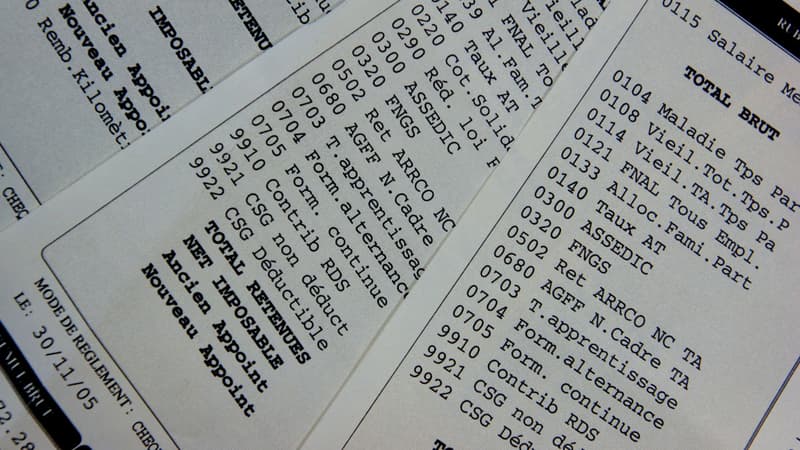Inflation eats more and more of the purchasing power of employees. In the second quarter, according to data published this Friday by Dares, the base salary (data that does not take into account bonuses or overtime) increased by 3.1%. An average that should be detailed.
In one year, employees and workers saw their salaries increase by 3.8% and 3.3% respectively, while executives and intermediate professions (salesmen, accountants, foremen, nurses, etc.) had to content themselves with an increase average 2.4%.
The revaluation of the Smic has protected some employees and workers
But in any case, these increases are far from offsetting the price increase. Dares thus underlines that the monthly base salary has decreased by 2.9% in one year, in constant euros. And there again when we look in detail, the loss of purchasing power is somewhat less for employees (-2.2%) and manual workers (-2.7%) than for managers and intermediate professions (-3.6%). ).
The explanation is simple, a good part of them affect the minimum wage, which, being indexed to inflation, increased by 2.2% in October 2021, then 0.9% in January 2022 and 2.65% last month of May (the increase of 2.01% on August 1 will have an effect on the average salary for the 3rd quarter). It should be noted that all these figures lack bonuses granted by employers that, in some cases, were able to compensate for the loss of purchasing power.
In Germany, if inflation is taken into account, wages fell by 4.4%
One question remains: do employees suffer more from inflation than their neighbors? We can take the example of Germany, the country with which France has the most trade. Data published by the federal statistics office, Destatis, shows that in the second quarter, remuneration (including bonuses this time) increased by only 2.9% in a year. And if we take inflation into account, German wages have fallen by 4.4%, much more than in France.
Such a difference may surprise at first glance. Germany has full employment, inflation is higher there than it is here, and the unions are particularly powerful there. But the most likely explanation is the timing of the dramatic increase in the minimum wage promised in the last general election won by the SPD. From 9.82 euros per hour at the end of June, it will drop to 12 euros on October 1, an increase of 22.2%! And this sharp increase will have a very significant impact on low wages. So by the end of the year, a large number of German employees will benefit from a significant recovery in inflation.
Source: BFM TV


